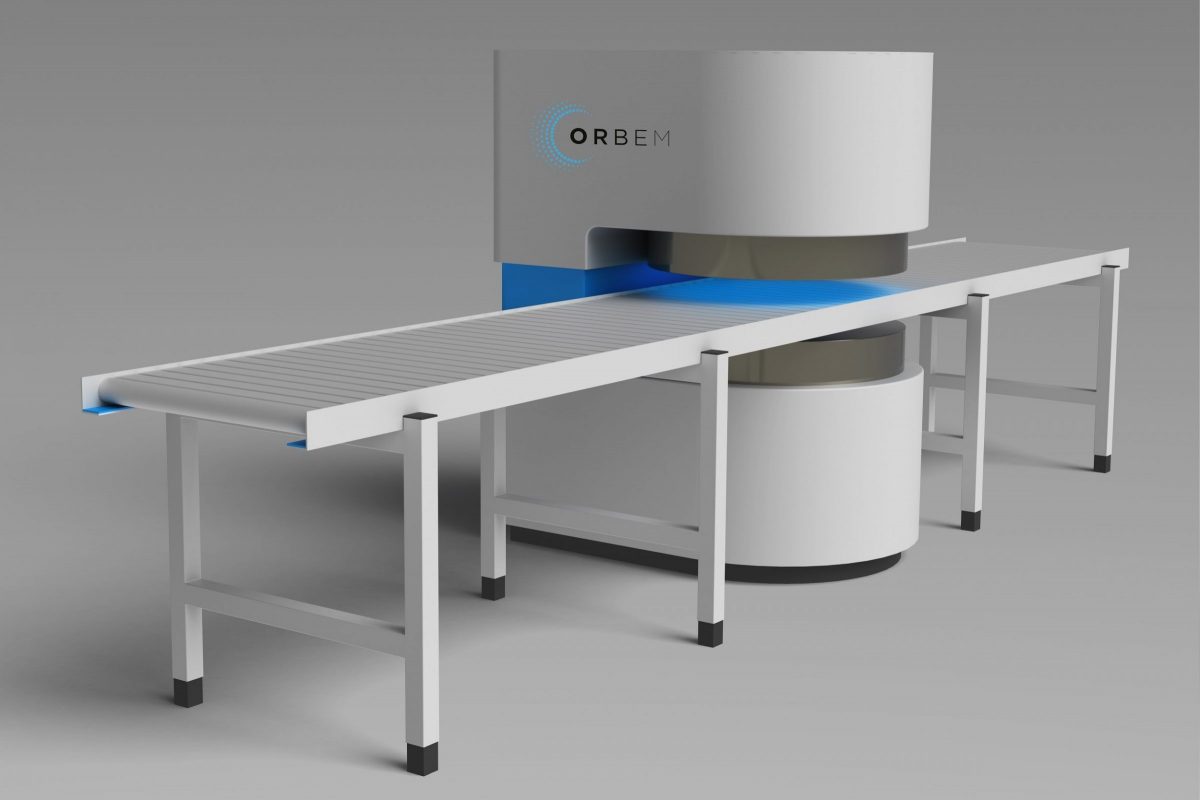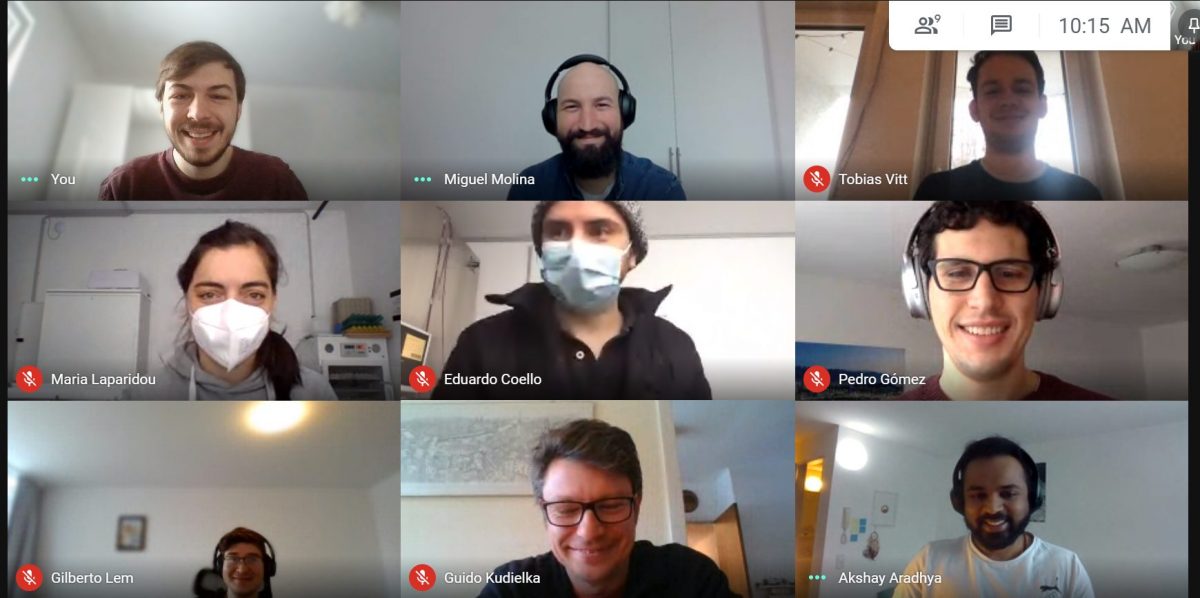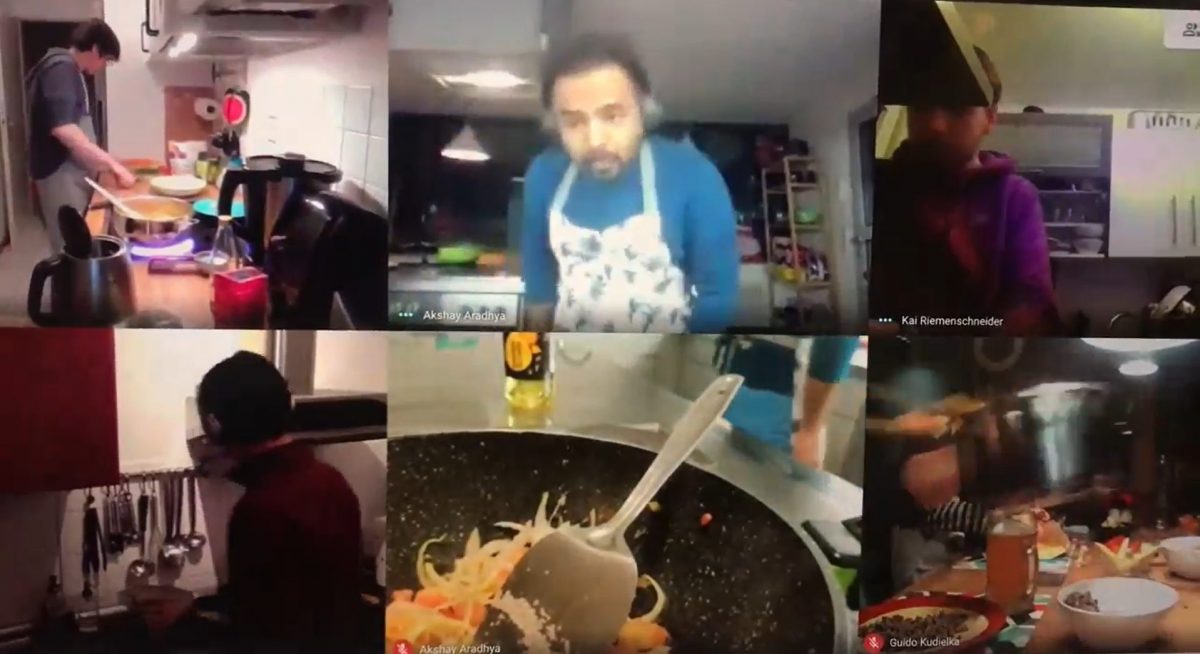Munich Startup: Who are you and what does Orbem do? Please introduce yourselves!
Orbem: We’re Maria, Miguel and Pedro. We’re actually Dr. Maria Laparidou, Dr. Miguel Molina and Dr. Pedro Gómez, since we all followed academic careers before opting for this totally different startup world. Two of us, Miguel and Pedro, got our PhDs in the field of artificial intelligence in magnetic resonance imaging at TUM. Maria got her PhD in the embryonic development of chickens at LMU and then switched to TUM for a research post. Without this extremely unique combination, Orbem would never have been possible, but we’ll get back to that later. In our startup, Maria is responsible for research and innovation as our CSO, Miguel for product development as CTO and Pedro is responsible for everything else as our CEO.
Munich Startup: What problem does your startup solve?
Orbem: Entire industries waste resources and only realize a fraction of their potential because they – literally – can’t look under the surface of their products, processes and data. We combine imaging technologies (such as magnetic resonance imaging) with artificial intelligence to generate new findings and solve our customers’ most difficult problems. Our first product classifies chicken eggs before they hatch to make billions of eggs useable as food that would have otherwise been wasted.
Orbem: Generating images for algorithms
Munich Startup: But that’s nothing out of the box!
Orbem: Obviously magnetic resonance imaging (MRI) is nothing new. A lot of people are familiar with MRIs from the hospital, because it’s a fantastic technology with an incredible amount of potential on the one hand, but is so expensive on the other hand that it’s been used almost exclusively in a clinical context until now.
We use artificial intelligence to build affordable, fast and versatile MRIs. By not generating images for physicians, but rather for algorithms, we’re opening the door for a multitude of new applications – such as in the poultry industry.
In talks with investors
Munich Startup: What have been your three biggest challenges so far?
Orbem: Hardware is complex and expensive. That’s something we became painfully aware of on several occasions. Correcting a bad design decision isn’t as easy as with software. Raising the initial capital for our first prototypes, which was several hundreds of thousands of euros, was also a challenge. And finally, the poultry industry is not always open to technological innovation – especially when it comes in the form of an MRI scanner. But we fortunately were able to find a few pioneers who recognized the potential of our product and supported our development.
Munich Startup: Where would you like to be in one year, and where in five years?
Orbem: In one year, we would like to have doubled our team to 16 full-time employees and to have installed our devices in two hatcheries. There will be some product development milestones behind that, particularly in terms of the speed and accuracy of the classification algorithms. Moreover, we’re also in talks with investors to finance our targeted growth.
A strong ecosystem for hardware startups
Munich Startup: What do you think about Munich as a startup location?
Orbem: We struck it lucky with Munich. We’re originally from Greece, Spain and Mexico. And the two, in our view, best universities in Germany brought us together in Munich. TUM in particular strongly supported us in the early stages of our founding. Then you also have a rapidly growing ecosystem, which even now already produces an amazing amount of high-quality innovations. Most recently, an unparalleled pool of ‘entrepreneurial talents’ was created by the Center for Digital Technology and Management (CDTM). They are incredibly valuable as first employees for young startups like us and also start their own companies, which makes Munich even more attractive as a startup location.
Munich Startup: Home cooking or take out?
Orbem: Home cooking! Like our remote cooking event, where our team made one Indian dish and one Mexican dish. There were varied degrees of success, but that made it all the more fun.



